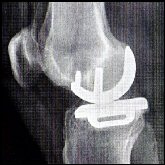 From Startup to the New Digital Age
From Startup to the New Digital Age
Jeff Segal – message therapist – Part 1
Once upon a time, not all that long ago, Google was a startup.
No one who attended The New Digital Age, hosted by the Chicago Council on Global Affairs last Thursday at the Swissotel, asked Google’s Eric Schmidt and Jared Cohen about the juggernaut’s humble, scrappy beginnings. They were there to hear about technology’s power to thwart terrorism and bring dictators to their knees.
But I’m old enough to remember when phones had cords and google was a noise you made to entertain a baby. I still find Google’s rise from startup to global domination astonishing.
And inspiring—because I write for (and about) startups for a living, and I do sometimes look at the energetic young faces around 1871 and think, someday soon, some of these folks are going to be huge. Not because they want to be billionaires. Because they want to change the world.
.
What Schmidt and Cohen Said
John Jonelis of Chicago Venture Magazine invited me to join him at the event, and invited me to write this article. John takes better notes than I do—the following recap doesn’t happen without his contribution.
Of course, many of you have read Schmidt and Cohen’s book, The New Digital Age: Reshaping the Future of People, Nations, and Business. Many of their answers could have been lifted straight from its pages.
Eric Schmidt is Google’s Executive Chairman and Jared Cohen is Director of Google Ideas. They have visited places most Americans will never go and seen firsthand how access to technology changes societies from the ground up. I found myself entirely engrossed. In 2009, these two went to Iraq. They’ve been to North Korea. They’ve been around. Obviously, they believe more access equals more benefits for humanity, and it’s hard to argue with that as a general thesis. But I will break their observations down into three main ideas:
.
1. Mobile access will soon be a universal right, if it isn’t already. Remember what happened in Egypt during the Arab Spring? In reaction to relentless street protests, President Hosni Mubarek shut down Internet access for four days. The shutdown didn’t slow the protests. No, it infuriated moderates into joining the radicals. Long story short—Mubarek was out of office (and in prison) by summer.
Cohen recounted the story of two Afghani villages raided by the Taliban: “In the first village, the raiders didn’t take away the residents’ mobile phones; in the second one they did. Guess which village fought back? That’s right—people laid down their lives to keep their phones.
There are vast areas of the undeveloped world where more people have mobile phones than electricity, changing these societies in ways we westerners can’t even imagine. Schmidt described how Congolese fisherwomen rely on real-time mobile updates on available refrigeration for what they catch. Said Schmidt, “This is literally the difference for a family between starvation and survival.”
.
2. It sucks to live in North Korea. “It was five degrees and there was no heat, even in government buildings,” said Schmidt. “The country is bankrupt.”
Cohen described a conversation with one of the famous Pyongyang traffic girls, who direct traffic on
roads that have virtually none. “I tried to tell her they were a YouTube sensation,” said Cohen. “She’d never heard of YouTube. She’d never heard of the Internet.”
Denying its population Internet access is just part of the thought-control mentality that Schmidt describes. “It’s a society without doubt.” (The citizens are not allowed to express doubt.) “They pretend their ICBMs are communication satellites. I told them nations are laying fiber optics rather than launching satellites, and all I got were blank stares. If they blink, they go to the gulag.
.
3. The virtual world will change the physical world. “In the future, every nation will have different foreign policies for the digital and the physical worlds,” Cohen said. “States can now invade each other before any shots are fired.”
Linking Western reluctance to intervene in the Syrian civil war with uncertainty about rebels’ intentions, Cohen predicted, “The rebels of the future will organize their entire virtual state online, then overthrow the government.”
Schmidt added, “More noise equals fewer deaths. If people plan things online, others will figure it out in advance. We will capture terrorists earlier. It’s possible smart phones could have prevented the Rwandan genocide.”
.
Very Fast
Whether Schmidt and Cohen’s predictions come true, three things are indisputable:
- The world is changing
- Google has helped spark those changes
- No one could have imagined the impact Google would have when it was just another startup.
Which brings me back to my initial point. Nearly every founder I’ve worked with or spoken to thinks of  his or her business in terms of its social impact. Some of them—like graduates of the Impact Engine program—run social enterprises with good-for-society goals at the core of their business models. But even those addressing straightforward business pain-points talk about their potential impact on the environment, the community or the next generation.
his or her business in terms of its social impact. Some of them—like graduates of the Impact Engine program—run social enterprises with good-for-society goals at the core of their business models. But even those addressing straightforward business pain-points talk about their potential impact on the environment, the community or the next generation.
Toward the end of the Q & A, a young man—younger than me—asked Schmidt and Cohen how the average citizen could make a positive impact in the world. Schmidt’s answer had nothing to do with the get involved philosophy of previous generations.
“It’s never been easier to get your values and creativity into the world,” he said. The key question is: “How fast can you organize people around your brilliant idea and scale very fast?”
Grad school project to dictator-toppling in 15 years? That’s VERY FAST in my book.
.
.
Contacts
Jeff Segal writes and creates content for entrepreneurs at messagetherapist.net
Chicago Council on Global Affairs www.thechicagocouncil.org
Photography Credits—Scientific American, CNN Tech, CNN-Our Mobile Society, Flickriver, Chicago Council on Global Affairs, Google.
.
Chicago Venture Magazine is a publication of Nathaniel Press www.ChicagoVentureMagazine.com Comments and re-posts in full or in part are welcomed and encouraged if accompanied by attribution and a web link . This is not investment advice. We do not guarantee accuracy. It’s not our fault if you lose money.
.
.Copyright © 2013 Jeff Segal – All Rights Reserved
.
.
.











































































































































































John,
It looks great on your page, too. One error I noticed — the subhead should read “It sucks to live in North Korea.” (You left out the North.)
Thanks again, Jeff
Fixed it! Glad you’re alert!
Very interesting article and a great reminder of The Law of Unintended Consequences. Looking forward to Part 2. Sharon
Good point. After reading the book and hearing their comments I am convinced that the true range of unintended consequences have yet to be explored.
John, I agree. We haven’t even seen the ” tip of the tip” of the Iceberg yet. At a bare minimum, we had better have solid, humanistic values in place. “The times they are a changin”.
Yes, and on the other side of the spectrum are the consequences of an electro magnetic pulse attack as North Korea seems to be preparing to do. The more digital we get the more disruptive such an attack will be.
Pingback: HOPE AND PARANOIA IN THE NEW DIGITAL AGE | Chicago Venture Magazine
Pingback: HOPE AND PARANOIA IN THE NEW DIGITAL AGE – SoshiTech
It is the best time to make some plpans for the future and it’s time to be happy.
I have read this post and iif I may just I wish to suggest you few interesting things oor suggestions.
Perhaps you can write subsequent articles relating to this
article. I want to learn even more issues approximately it!
Howdy! This is my first visit to your blog! We are a collection of volunteers and starting a new project in a community in the same niche.
Your blog provided us useful information to work on. You have done a marvellous job!
Hi there! I could have sworn I’ve been to this site before but after looking at
a few of the posts I rrealized it’s new to me. Nonetheless, I’m definitely happy I came across it and I’ll be
book-marking it and checking back regularly!